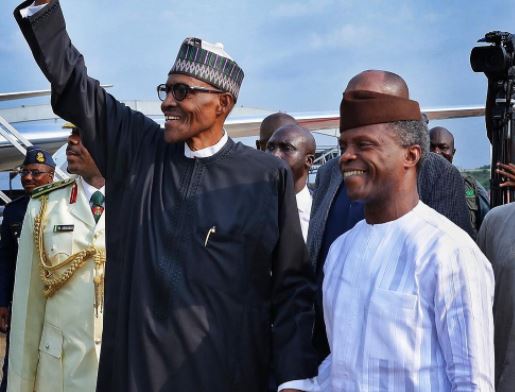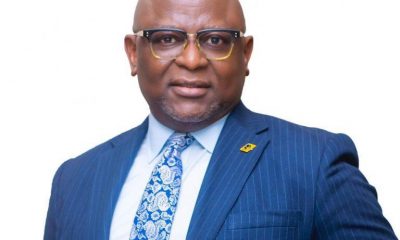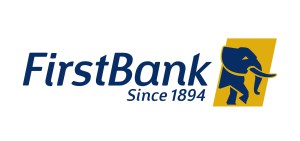Business
Real reason I invited Osinbajo to London – President Buhari reveals

PRESIDENT Muhammadu Buhari on Friday met with governors of the 36 states of the federation, revealing that he invited Vice Yemi Osinbajo to London in July to thank him for the way he ran the country in the president’s absence.
He told the governors that Osinbajo applied his intellect to administer the country commendably prompting him to invite Osinbajo to London to personally thank him.
“The efforts by the vice president are commendable. He used his intellect to run all over the place. I was seeing him 24 hours on NTA. I congratulate him. I allowed him to come and see me to thank him personally for what he has done,” Buhari explained.
Osinbajo on July 11 made a 24 hours return trip to meet President Buhari who was on medical vacation at Abuja House in London.
The president maintained that while he was away, he closely monitored events particularly in that states and was happy with the way the governors tackled the issue of inadequate food production as high food import was taking its toll on the naira.
Buhari explained that the devaluation of the naira was not his government’s making, noting that even though it may not be a comfortable development, there was nothing that could be done about it.
He said: “I had so much time to watch television, NTA, I heard so much information about the states. I am very pleased with the states, you are all doing your best and it is proving to be good enough on agriculture and solid minerals. You are succeeding in agriculture because I think people cannot afford foreign food.
“The devaluation of the Naira is not my making; it may not favour us but it is something we cannot change. Some people were asking me if we should be stricter on the border, but I want to thank God this year is better than what it used to be.”
The president mocked the ResumeOrResign group who protested against his presence in the U.K.
He said now that he was back to the country, members of the group especially those who do not pay taxes to the U.K. government should consider returning home or get caught by the implications of Brexit.
Brexit is the term for the United Kingdom’s intended withdrawal from the European Union (E.U.).
He advised them to consider the implications and make plans to return home.
According to him, those that have plans to sell their properties should consider bringing some home to help the Nigerian economy.
Buhari said: “I’m very happy with the national prayers it was very well covered and reported, across religions and ethnicity, people were praying. In fact some groups in London came and sang the national anthem and asked that I should go back home, indeed I have come back home.
“I hope those who went there are not stuck there, they should come back and join us, those that are stuck there with the Brexit, I hope they have weighed the implications that it won’t affect them including those that have properties there, those who are not paying tax here. I hope when they sell their properties there they will bring some of the money here. We need it very badly here.”
The President said the visit of the governors has boosted his morale, adding: “I thank you very much. My morale have been raised greatly by the love shown to me and the security of the country.”
The Chairman of Nigeria Governors Forum (NGF) and Governor of Zamfara, Abdulaziz Yari, in his remarks observed that the Buhari administration has enabled state governments that hitherto could not pay workers’ salaries to meet up with their obligations.
He added that the bailouts and the refund of the Paris Club funds authorized by the president have helped to cushion the effects of recession in the states.
Kogi Governor, Yahaya Bello, expressed happiness with the improvement of Buhari’s health.
He said: “Our President went to take care of his heath and now he is back healthy and healthier than before. We are here to appreciate him. We thank almighty God that he is back safely.
“We equally thank his able lieutenant, Professor Yemi Osinbajo who held the country firm in his absence. That is the demonstration of team work.
“It has equally shown that Nigerians selected the best and elected the best in 2015 general election and today Nigeria is better for it.
“He is back we are celebrating life. We are celebrating health.”
In his remarks to State House correspondents later, Governor Simon Lalong of Plateau state, said governors were happy about the president’s return.
He said: “You can see some level of enthusiasm and happiness on the faces of all the governors. That is to say all of us were anxiously waiting for the return of our dear President.
“You saw it today, the President went around to greet all of us and you can see he has come back healthier than when he left.
“Our prayer is that God will continue to guide Mr President and also the challenges of governance in Nigeria, he will give him that good strength and good heath to solve the problems of the nation.
“With him back, everything is taking shape again. This is not to say the acting president was not doing well.
“Our Acting President, we must commend him. In the absence of the president, there was not vacuum because the acting president filled in the gap and did his best up to this moment and showed absolute loyalty both to the nation and Mr President.
Business
Nigeria’s Inflation Drops to 15.10% as NBS Reports Deflationary Trend

Nigeria’s headline inflation rate declined to 15.10 per cent in January 2026, marking a significant drop from 27.61 per cent recorded in January 2025, according to the latest Consumer Price Index (CPI) report released by the National Bureau of Statistics.
The report also showed that month-on-month inflation recorded a deflationary trend of –2.88 per cent, representing a 3.42 percentage-point decrease compared to December 2025. Analysts say the development signals easing price pressures across key sectors of the economy.
Food inflation stood at 8.89 per cent year-on-year, down from 29.63 per cent in January 2025. On a month-on-month basis, food prices declined by 6.02 per cent, reflecting lower costs in several staple commodities.
The data suggests a sustained downward trajectory in inflation over the past 12 months, pointing to improving macroeconomic stability.
The administration of President Bola Ahmed Tinubu has consistently attributed recent economic adjustments to ongoing fiscal and monetary reforms aimed at stabilising prices, boosting agricultural output, and strengthening domestic supply chains.
Economic analysts note that while the latest figures indicate progress, sustaining the downward trend will depend on continued policy discipline, exchange rate stability, and improvements in food production and distribution.
The January report provides one of the clearest indications yet that inflationary pressures, which surged in early 2025, may be moderating.
Bank
Alpha Morgan to Host 19th Economic Review Webinar

Alpha Morgan to Host 19th Economic Review Webinar
In an economy shaped by constant shifts, the edge often belongs to those with the right information.
On Wednesday, February 25, 2026, Alpha Morgan Bank will host the 19th edition of its Economic Review Webinar, a high-level thought leadership session designed to equip businesses, investors, and individuals with timely financial and economic insight.
The session, which will hold live on Zoom at 10:00am WAT and will feature economist Bismarck Rewane, who will examine the key signals influencing Nigeria’s economic direction in 2026, including policy trends, market movements, and global developments shaping the local landscape.
With a consistent track record of delivering clarity in uncertain times, the Alpha Morgan Economic Review continues to provide practical context for decision-making in a dynamic environment.
Registration for the 19th Alpha Morgan Economic Review is free and can be completed via https://bit.ly/registeramerseries19
It is a bi-monthly platform that is open to the public and is held virtually.
Visit www.alphamorganbank to know more.
Business
GTBank Launches Quick Airtime Loan at 2.95%

GTBank Launches Quick Airtime Loan at 2.95%
Guaranty Trust Bank Ltd (GTBank), the flagship banking franchise of GTCO Plc, Africa’s leading financial services group, today announced the launch of Quick Airtime Loan, an innovative digital solution that gives customers instant access to airtime when they run out of call credit and have limited funds in their bank accounts, ensuring customers can stay connected when it matters most.
In today’s always-on world, running out of airtime is more than a minor inconvenience. It can mean missed opportunities, disrupted plans, and lost connections, often at the very moment when funds are tight, and options are limited. Quick Airtime Loan was created to solve this problem, offering customers instant access to airtime on credit, directly from their bank. With Quick Airtime Loan, eligible GTBank customers can access from ₦100 and up to ₦10,000 by dialing *737*90#. Available across all major mobile networks in Nigeria, the service will soon expand to include data loans, further strengthening its proposition as a reliable on-demand platform.
For years, the airtime credit market has been dominated by Telcos, where charges for this service are at 15%. GTBank is now changing the narrative by offering a customer-centric, bank-led digital alternative priced at 2.95%. Built on transparency, convenience and affordability, Quick Airtime Loan has the potential to broaden access to airtime, deliver meaningful cost savings for millions of Nigerians, and redefine how financial services show up in everyday life, not just in banking moments.
Commenting on the product launch, Miriam Olusanya, Managing Director of Guaranty Trust Bank Ltd, said: “Quick Airtime Loan reflects GTBank’s continued focus on delivering digital solutions that are relevant, accessible, and built around real customer needs. The solution underscores the power of a connected financial ecosystem, combining GTBank’s digital reach and lending expertise with the capabilities of HabariPay to deliver a smooth, end-to-end experience. By leveraging unique strengths across the Group, we are able to accelerate innovation, strengthen execution, and deliver a more integrated customer experience across all our service channels.”
Importantly, Quick Airtime Loan highlights GTCO’s evolution as a fully diversified financial services group. Leveraging HabariPay’s Squad, the solution reinforces the Group’s ecosystem proposition by bringing together banking, payment technology, and digital channels to deliver intuitive, one-stop experiences for customers.
With this new product launch, Guaranty Trust Bank is extending its legacy of pioneering digital-first solutions that have redefined customer access to financial services across the industry, building on the proven strength of its widely adopted QuickCredit offering and the convenience of the Bank’s iconic *737# USSD Banking platform.
About Guaranty Trust Bank
Guaranty Trust Bank (GTBank) is the flagship banking franchise of GTCO Plc, a leading financial services group with a strong presence across Africa and the United Kingdom. The Bank is widely recognized for its leadership in digital banking, customer experience, and innovative financial solutions that deliver value to individuals, businesses, and communities.
About HabariPay
HabariPay is the payments fintech subsidiary of GTCO Plc, focused on enabling fast, secure, and accessible digital payments for individuals and businesses. By integrating payments and digital technology, HabariPay supports innovative services that make everyday financial interactions simpler and more seamless.
Enquiries:
GTCO
Group Corporate Communication
[email protected]
+234-1-2715227
www.gtcoplc.com
-

 celebrity radar - gossips6 months ago
celebrity radar - gossips6 months agoWhy Babangida’s Hilltop Home Became Nigeria’s Political “Mecca”
-

 society6 months ago
society6 months agoPower is a Loan, Not a Possession: The Sacred Duty of Planting People
-

 society5 months ago
society5 months agoReligion: Africa’s Oldest Weapon of Enslavement and the Forgotten Truth
-

 news6 months ago
news6 months agoTHE APPOINTMENT OF WASIU AYINDE BY THE FEDERAL GOVERNMENT AS AN AMBASSADOR SOUNDS EMBARRASSING










You must be logged in to post a comment Login